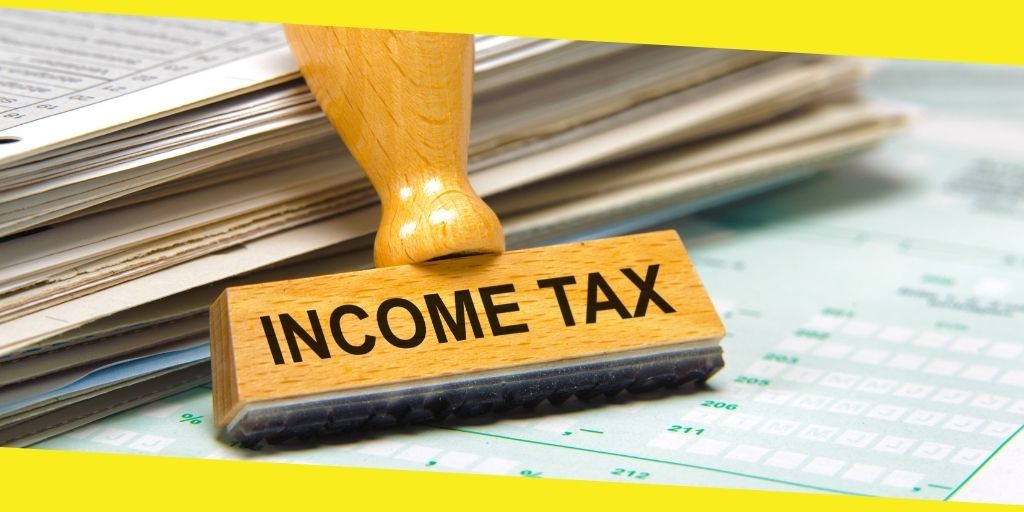What is Income Tax? How to File Tax E-filling
This post was last updated on March 20th, 2024

Income tax is a term that you may have no doubt often heard over the past few years. As an increasing number of people grow more conscious of finance and investments, tax education and tax awareness are also becoming highly relevant in recent years. However, if you are not sure of what income tax is, let’s begin at the basics to make things clearer for you.
What is income tax?
Income tax is a kind of direct tax levied by the government of India. The Income Tax Act, 1961 governs the levy, collection, assessment and other proceedings related to this tax. It is levied on the direct income that you earn during each financial year (FY).
Typically, every financial year begins on April 1 of one year and ends on March 31 of the subsequent year. For instance, the financial year 2020-21 begins on April 1, 2020 and ends on March 31, 2021.
The income you earn during each financial year is assessed during the subsequent year, known as the assessment year (AY). So, the income earned during FY 2020-21 is assessed during the AY 2021-22, which begins on April 1, 2021 and ends on March 31, 2022.
Who needs to pay income tax?
Anybody who earns income needs to pay income tax. Taxpayers include the following categories of entities.
- Individuals
- Hindu Undivided Families (HUFs)
- Association of Persons (AOPs)
- Body of Individuals (BOIs)
- Partnership Firms
- Companies
What are the five different heads of income under the Income Tax Act, 1961?
The Income Tax Act, 1961 has classified all income into five different heads. Your income tax calculation is based on these five heads of income. Here is a closer look at these income heads and what they generally entail.
| Head of income | Nature of the income it covers |
| Income from salaries | This income includes the salary or the pension you earn. |
| Income from house property | Rental income from the house property or properties that you own is covered under this head. |
| Profits and gains from business or profession | If you are a self-employed person, the profits you earn from your business are categorized as business income under this head. Profits that companies, firms and other entities earn also fall under this head. |
| Capital gains | The gains earned from selling capital assets like land, property, gold, shares and other securities are categorised as capital gains. |
| Income from other sources | Any other income that does not fall under the above four categories is classified as ‘other income.’ Some examples include interest income, lottery winnings and family pension. |
What is the rate of tax applicable to you?
The income tax calculation depends on the income slab under which you fall. You can choose between the old and new tax regimes for FY 2020-21. The rates of tax are different for different levels of income, as you can see from the tables below.
Income tax rates as per the old tax regime
| Income levels | Tax rate |
| Up to Rs. 2.5 lakhs | Nil |
| Rs. 2.5 lakhs to Rs. 5 lakhs | 5% |
| Rs. 5 lakhs to Rs. 10 lakhs | 20% |
| Above Rs. 10 lakhs | 30% |
Income tax rates as per the new tax regime
| Income levels | Tax rate |
| Up to Rs. 2.5 lakhs | Nil |
| Rs. 2.5 lakhs to Rs. 5 lakhs | 5% |
| Rs. 5 lakhs to Rs. 7.5 lakhs | 10% |
| Rs. 7.5 lakhs to Rs. 10 lakhs | 15% |
| Rs. 10 lakhs to Rs. 12.5 lakhs | 20% |
| Rs. 12.5 lakhs to Rs. 15 lakhs | 25% |
| Above Rs. 15 lakhs | 30% |
What is income tax e-filing?
Each year, based on the income you earned and the corresponding income tax calculation, you need to pay tax on your income as per the slab rate applicable to you. Additionally, you also need to furnish information to the income tax department regarding your income and the taxes paid during the financial year. This information is furnished using an Income Tax Return (ITR) and the process is known as ITR filing.
Today, thanks to the digital income tax portal, income tax e-filing is possible. All you need to do is log into your account on the portal, enter the necessary information, and file your ITR online directly.
Conclusion
So, this sums up the basic details about income tax. Based on what you have learned above, you can continue to expand your knowledge about how this tax works. And you can even use this awareness to reduce your tax burden with other tax-saving investment options.
Recommended For You
14 Specific Thoughts That Every Millionaire Believes About Money
Most Inside
Most Inside offers high-quality recommendations and valuable updates to enhance all aspects of your life, providing premium guidance and enriching experiences.




